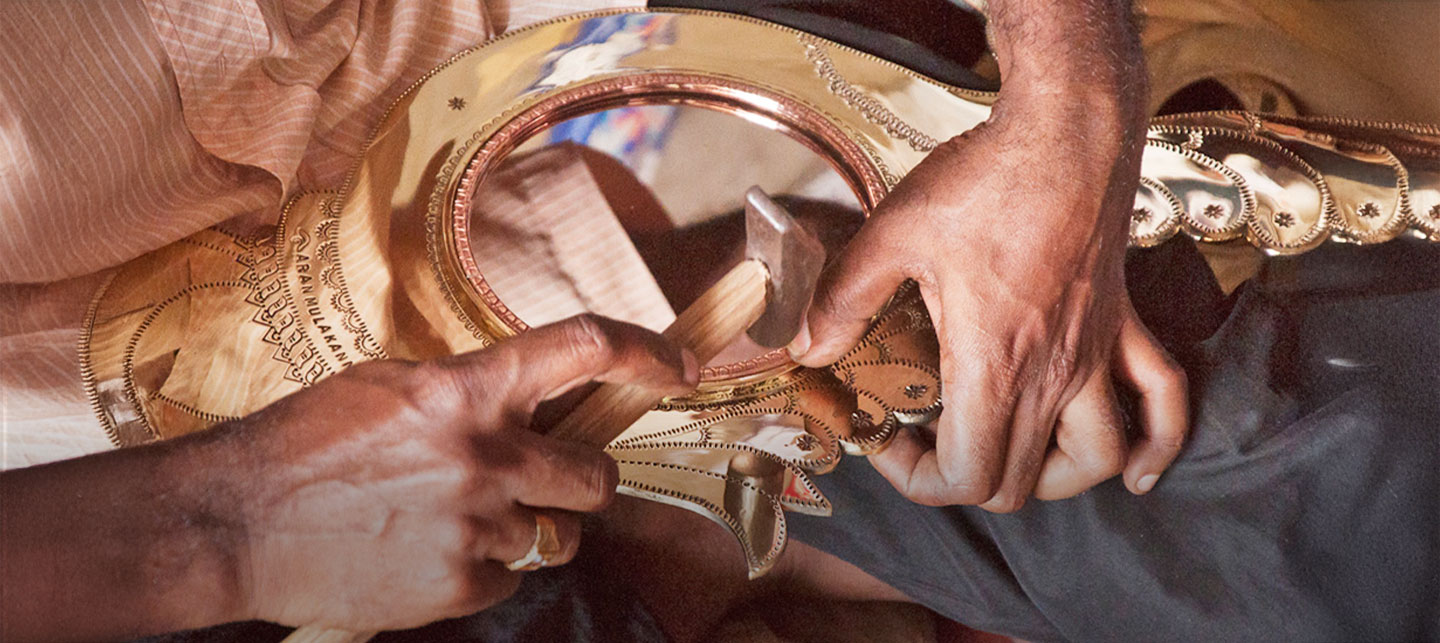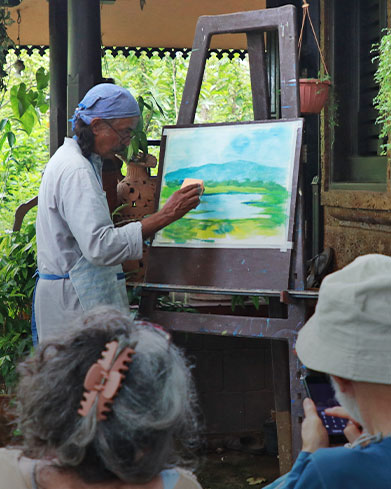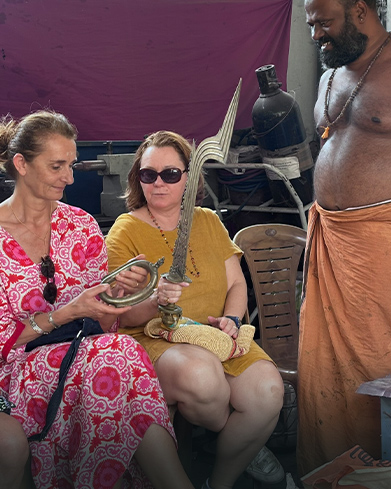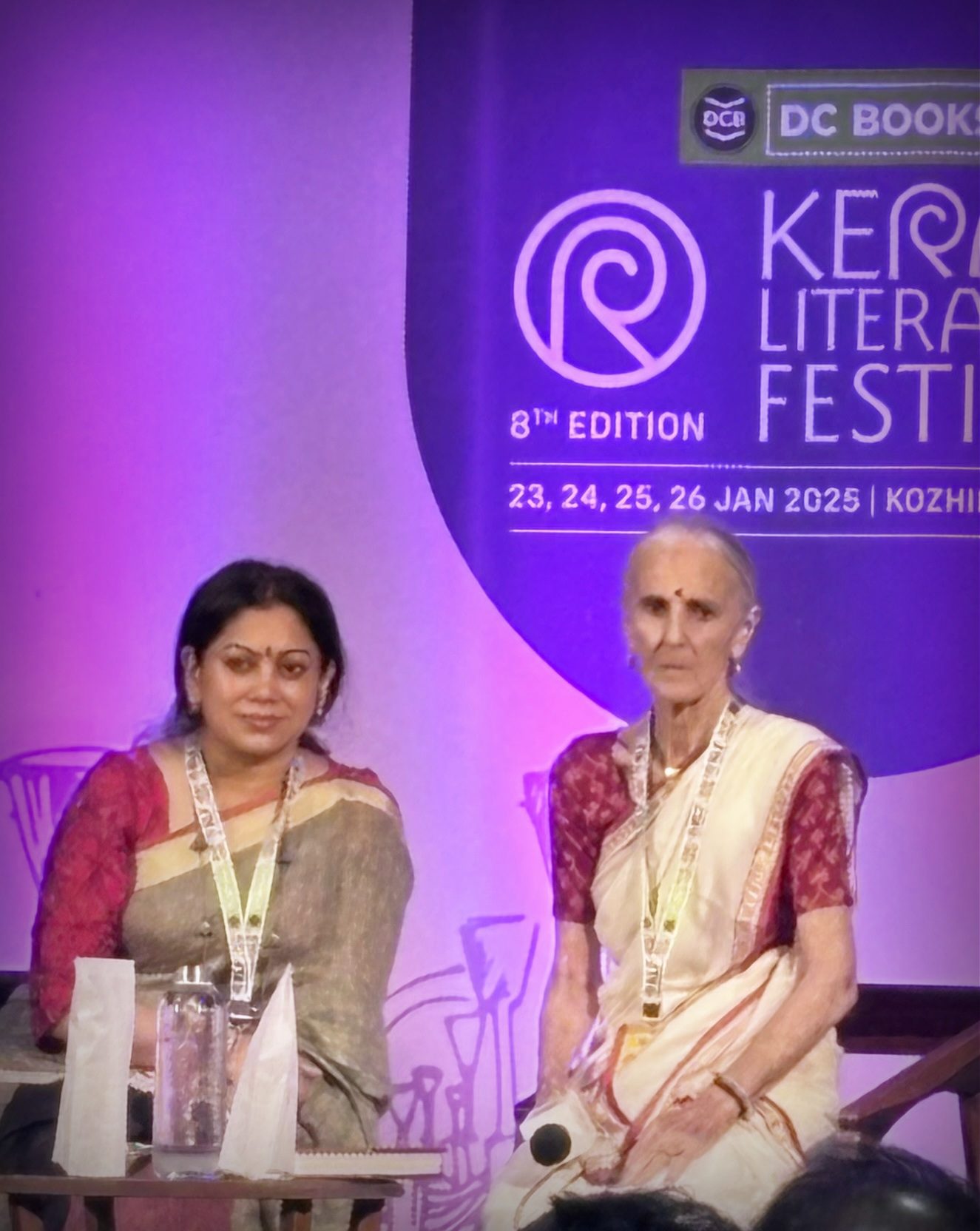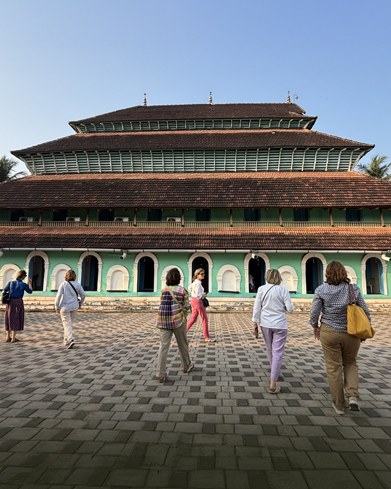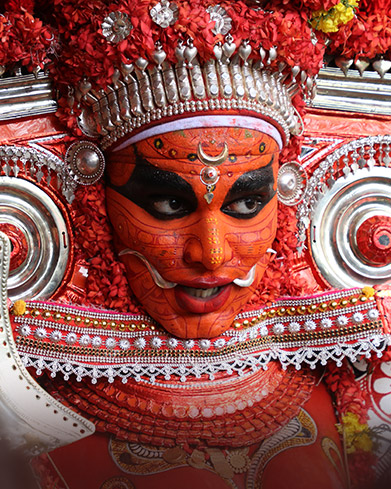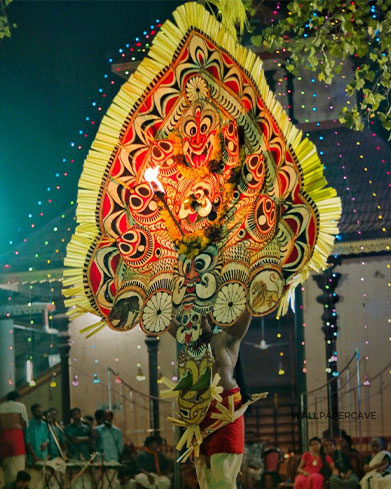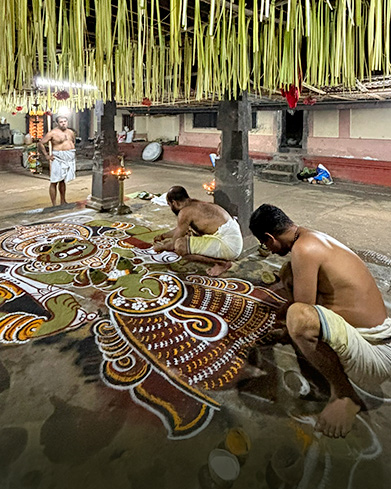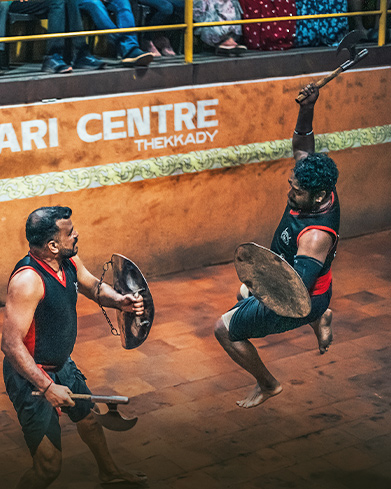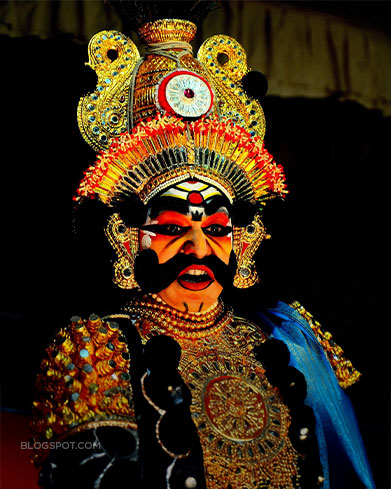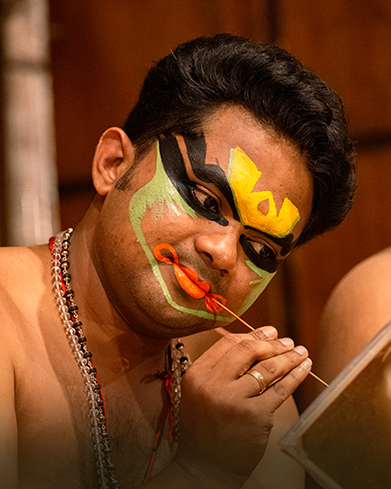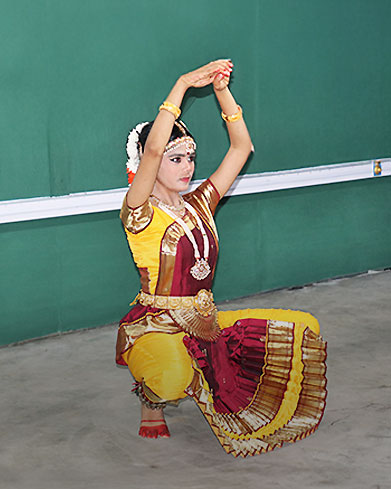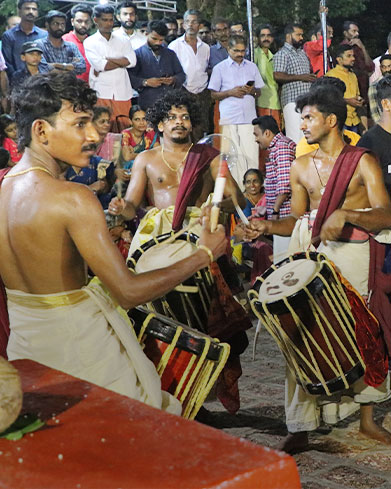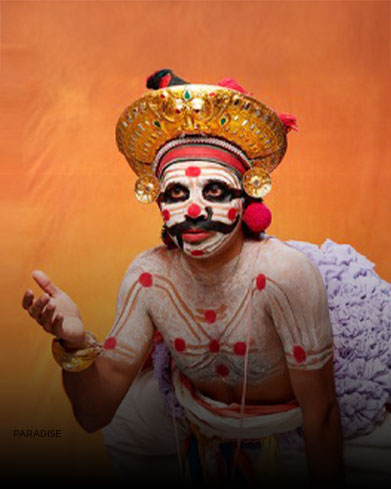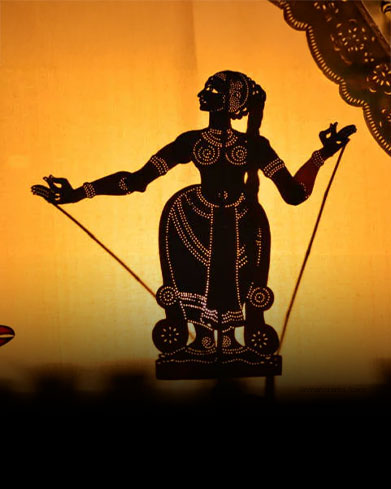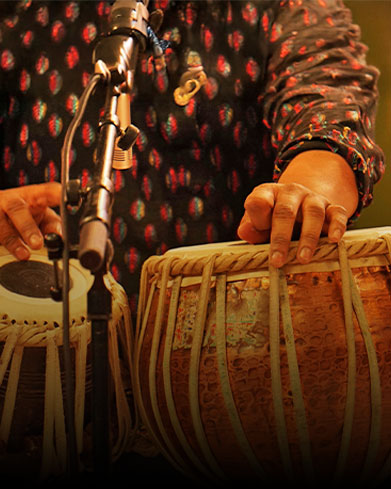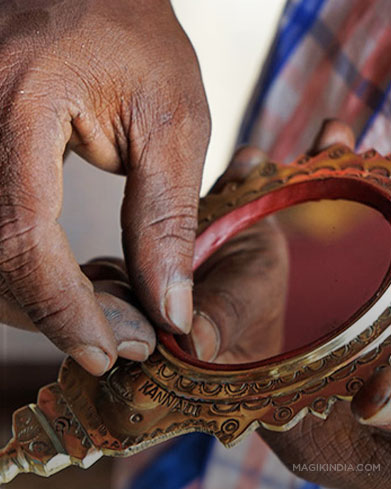Aranmula Mirror Making Experience
Where tradition polishes time into reflection, and every mirror holds the secret of a thousand hands
In the quiet riverside village of Aranmula, where temple rituals echo across the Pamba and the smell of oil lamps lingers in the air, a centuries-old secret continues to shine—quite literally. Here, hidden behind unassuming walls and passed down through generations, master craftsmen shape reflections out of metal. This is the world of the Aranmula Kannadi—a mirror unlike any other on Earth.
With Ekathra, you step not into a shop, but into a story. This is not a polished showroom experience, but a deeply human encounter with the soul of a tradition held by a single extended family in this temple town. You’re welcomed into their modest workspace—walls darkened by years of labor, tools worn smooth by ancestral hands—and introduced to a mirror that does not simply reflect your image, but your place in a living lineage.
Unlike ordinary glass mirrors, the Aranmula Kannadi is forged from a secret metal alloy, believed to be a mix of copper and tin. Its surface is not coated but polished—again and again—for days, sometimes weeks, with a paste made from rice bran and maroṭṭi seed oil, until it gleams with startling clarity. There is no glass, no backing—just pure metal reflecting light from its very surface. The result is eerily perfect, absorbing and returning your gaze with a kind of quiet intelligence. It is known as a first-surface mirror, prized for its lack of distortion, revered for its mystique.
As you observe—or even try your hand at polishing under the guidance of the artisans—you begin to understand that this mirror is not just an object, but a ritual. It is patience made visible. Every stroke, every motion is measured, meditative. You hear stories of how this knowledge is guarded like a family deity, never written, never spoken outside the lineage.
This immersive experience also reveals the mirror’s spiritual and cultural life. The Aranmula Kannadi is part of Kerala’s sacred ashtamangalyam—eight auspicious symbols used in weddings and temple rituals. It is believed to bring luck, purity, and divine presence into homes. Brides walk past it on their wedding day. It is offered at temples as a gesture of deep reverence. And now, through Ekathra’s careful curation, it becomes a symbol of how tradition can meet responsible travel—with dignity and depth.
By supporting this experience, travelers contribute directly to the sustenance of a rare and endangered craft. Revenue helps maintain the workshop, support the artisans’ livelihoods, and preserve a cultural legacy that cannot be mass-produced. The artisans speak not just of technique, but of trust, pride, and the joy of sharing their world with someone who sees the mirror not as a souvenir, but as a story.
And when you finally see your own face reflected in that cool, polished surface, you realize: this isn’t a mirror you look into—it’s one you’re invited to look through.
